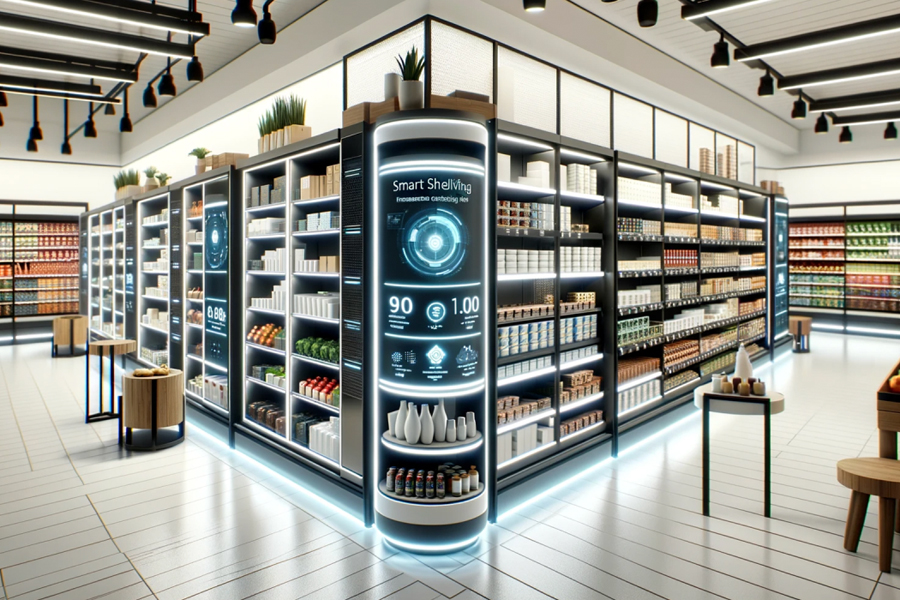The dynamic retail industry relies on technology to streamline processes. Smart shelves, which track goods in real time, are transforming retail. This technological marvel transforms the shopping experience for customers and businesses and simplifies inventory management.
Understanding Smart Shelves
Smart shelves blend modern technologies with traditional retail shelving. These shelves with sensors, RFID tags, and advanced data analytics can track inventory in real time. Traditional storage shelves are less crafty than smart shelves. They can track every product placed on them and provide accurate stock level information due to their intelligence.
How Smart Shelves Work
RFID Technology
Smart shelving relies on RFID technology. All products have a small RFID tag with a unique number. As soon as the RFID reader on the smart shelf scans the tags, the product is identified and recorded.
Sensors and Weight Detection
Some smart shelves have sensors and weight detection to track product counts. The sensors instantaneously update inventory status when a product is added or deleted based on weight.
Wireless Network Connectivity
Smart shelves connect to a central system via wireless networks. This connectivity ensures efficient communication between shelves and inventory management software as products come in and out, allowing quick changes and modifications.
Data Analytics
Advanced algorithms analyse collected data. This research provides important information regarding popular products, inventory trends, and optimization options. This data can help retailers set prices, manage inventory, and replenish.
Inventory Tracking Benefits of Smart Shelves
Real-Time Visibility
One of the main benefits of smart shelves is real-time inventory visibility. Retailers with timely stock level information have fewer stockouts and overstocks. This ensures stocked shelves, improving customer happiness.
Decreased Human Errors
Traditional inventory management involves manual data entry and counting, which increases human error. Automating tracking on smart shelves reduces this risk. RFID technology and sensors decrease discrepancies, making inventory data more reliable.
Stock Replenishment
Accurate stock quantity and product demand data can help merchants improve stock replenishment. Smart shelves identify and ensure the availability of fast-selling products while removing slow-movers from surplus inventory.
Improved Customer Experience
Smart shelves deliver real-time inventory data, improving customer experience. Customers may easily find alternatives, check product availability, and make informed purchases. Transparency boosts customer loyalty and improves the purchase experience.
Effective Loss Prevention
Smart shelving can help prevent loss. They track product movements and warn retailers of irregularities to swiftly discover and resolve theft or misplacement issues.
Conclusion
Retail inventory management is revolutionized by smart shelves. Advanced data analytics, RFID technology, and sensors on these intelligent shelves improve inventory monitoring efficiency, reduce manual errors, and provide real-time insight. The benefits go beyond back-end operations to improve client experiences and business decisions. Smart shelves could change inventory management as the retail business evolves. Retailers who utilize this technology can lead innovation and provide a pleasant shopping experience for customers and enterprises.



